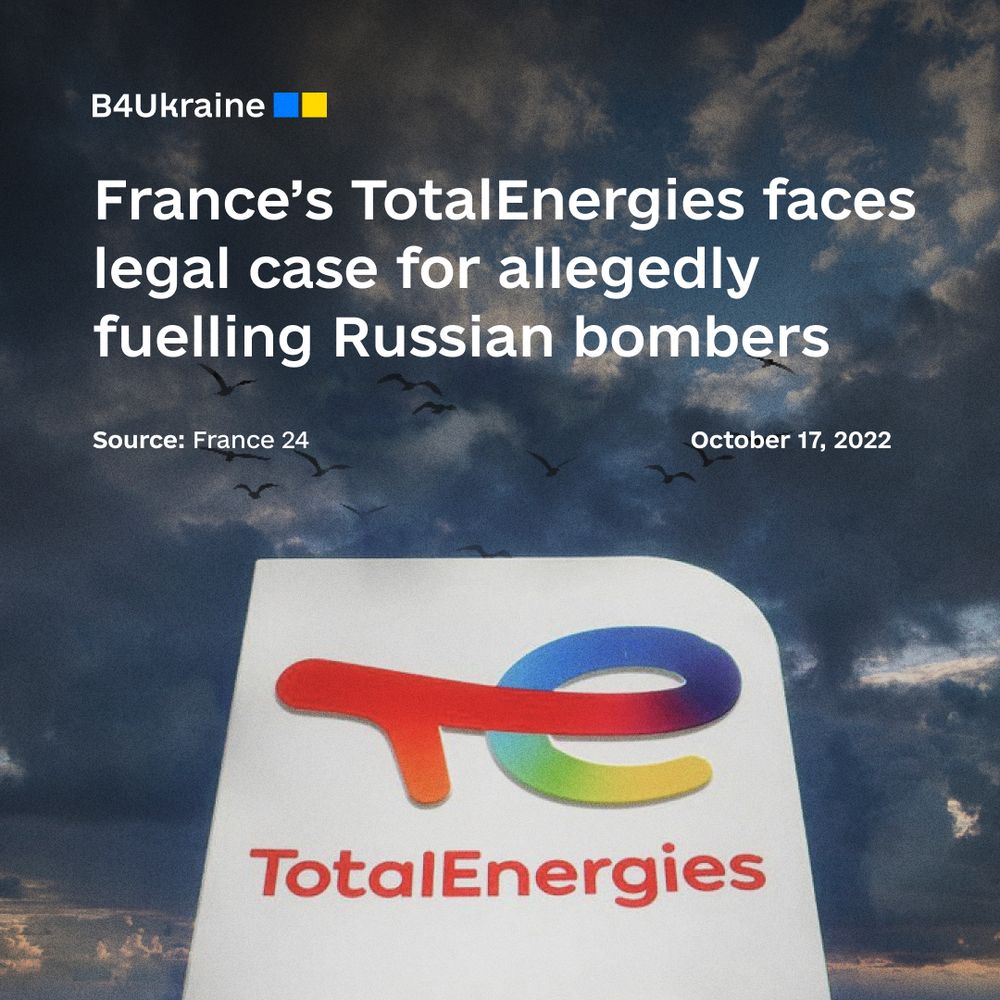
The France-based Darwin Climax Coalition and Ukrainian group Razom We Stand have filed a complaint against French energy giant TotalEnergies for “complicity in war crimes” for allegedly helping fuel Russian planes that have bombed Ukraine, according to French media reports. They handed the file to the national anti-terrorist prosecutor, who investigates war crime allegations, alleging that the company “contributed to providing the Russian government with the means necessary for the commission of war crimes.”
The two NGOs accuse the French energy giant of exploiting a gas field used to manufacture kerosene used by Russian planes in their bombings in Ukraine, particularly in the March 16, 2022, strike on a Mariupol theatre sheltering civilians, which killed around 600, according to French daily Le Monde. TotalEnergies rejected the accusations, calling them “outrageous and defamatory.”
The complaint comes after the Global Witness investigation regarding Total. The investigation showed how gas condensate from Total’s Termokarstovoye field was transported across Russia for refining to Omsk before being shipped as jet fuel to Russian Air Force bases near Ukraine, including bases for Sukhoi Su-34 fighter-bombers. The pilots of these warplanes have been accused of indiscriminate bombing of civilian areas, including a strike on Chernihiv on March 3, 2022, which reportedly killed 47 civilians.
Total denies all accusations, but days after the investigation was published it announced the company had sold its 49% stake in TerNefteGaz. Though, Total’s deal shouldn’t be considered a complete exit, as Total still owns 19.4% of Novatek, Russia’s second-largest gas producer and the buyer of the remaining TerNefteGaz shares.
The legal complaint unambiguously demonstrates how operating in Russia when it continues to wage unlawful war against its neighbor can force an increased legal risk on a company on top of a reputational one. The B4Ukraine coalition calls on every multinational company to leave Russia immediately to stop enabling the war crimes in Ukraine and avoid increased complicity risk as well as legal, reputational, and financial risks Russia imposes on international businesses.